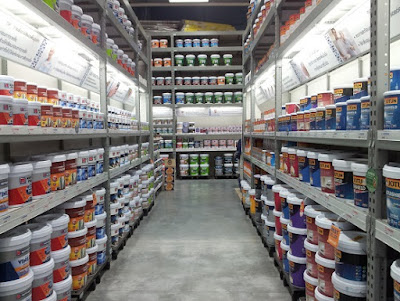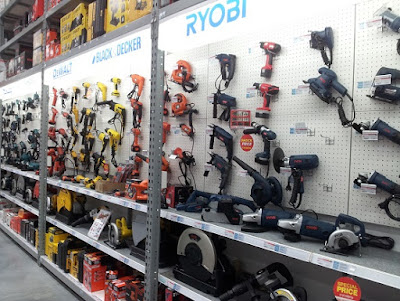So you need to get
some work done on your house. Regardless of what kind of work you want to do, -
building, renovation, remodelling, interior design etc, finding the right
people to do your job, be it big or small, is important not only for your
wallet but also for minimising the risk of heartache and damage to your sanity.
About Thai
Contractors
Thai builders and
contractors are capable of good quality work (just look at the buildings and
skyscrapers in Bangkok).
However, like car mechanics, a honest, dependable, and competent building
contractor is hard to find. This is especially so if you are living in the
provinces and rural areas. This is because the good ones would probably have
gone to work in Bangkok
or at other places where the money is.
But no matter where
you are, here are some things to look out for when engaging a contractor.
Finding a Contractor
Online
These days, the
easiest way of doing so is going online, especially in forums such as Thaivisa
and Teakdoor. You have the benefit of tapping on the experience of others, so
you already know what to expect before you proceed (I have engaged the services
of a lawyer as well as visited car workshops through online recommendations and
they were pretty accurate and good, like what the reviews said).
Look Around Your
Neighbourhood
If online
information is not available for your area, another method you can try is to
look around your neighbourhood or apartment block. See if there are any
contractors that are currently doing some work. Better still, if they are
working on a few places in the same neighbourhood at the same time (besides
being a rough testament to their workmanship or prices, this also makes it
easier to get them to do rectification works later on). If you like what you
see, simply go up to the contractor and ask him to drop by your place and offer
a quote.
At the same time, beware
if the contractor is working on too many jobs in your area at the same time. Some
contractors work on many jobs concurrently as, rather than having potential
customers wait and run the risk of losing a job, they will take on all jobs
that come along. However, this means that his work is likely to be slow if he has
a small setup and has only a limited number of workers helping him.
Look at the Houses
Around Your Neighbourhood
If online
information is not available for your area and there are no contractors working
in your neighbourhood currently, you can try looking for houses here that have
had work done on them. If you like what you see, talk to the owner. Most Thais
will be happy to give you the contact while sharing with you about their
experience with the contractor and the cost involved.
Random Searches
This includes
listings online, in newspapers, and through word of mouth. Getting a good
contractor can be hit and miss, even if they have a registered company and
office.
So if you are going
with these sources, ask for references if possible.
Beware of Empty
Promises
To get the job, many
contractors will promise you anything initially and then give you shoddy work later
on, hoping that it is acceptable to you. If it is not, they may rectify the
mistakes until:
- A
minimum standard acceptable to you is reached.
- You
get so worn out and worn down by the entire process that at a certain point,
you give up and accept whatever has been achieved.
- You
make them rectify the mistakes until the contractor gets pissed and an argument
ensues. This sours the working relationship such that they may either down
tools and walk off the job or if not, you run the risk of encountering even
shoddier work for the rest of the job.
To avoid all of
these issues, think carefully whether the contractor is capable of keeping his
promises (look to his past work for an idea). If it sounds too good to be true,
it probably is.
Comprehensive
Paperwork
Does the contractor
provide proper paperwork? E.g. list of works to be done, drawings, timetable
for each task, list of materials to be used etc?
Note that not every
contractor will have these (especially in the rural areas) but even if these
are not available, it will be good to ask them to verbally specify all of these
in detail so that everyone has a common understanding of what is involved and
is in agreement.
I have also
prevented mistakes before, right at the beginning, by simply asking the
contractor to do a simply handwritten drawing of what he was going to do. It
turned out that his understanding of the job was different from that of mine.
Cost
Always ask for the
cost before allowing the contractor to commence a job. This is to prevent
misunderstandings and inflated costs later on.
Be reasonable and
pay for what you want. If you want luxury, pay for it. If you pay peanuts, do
not expect too much.
Do not make a
decision solely on cost. Reliability and workmanship is equally important for
good work to be done. Bargaining too hard may get you a good price and the
contractor might accept the job if he is desperate but you can be sure he will
cut corners to save time/effort/materials used in order to justify the amount
of money he gets. At the same time, beware of quotes that are too low or too
good to be true. If the price is too low, the contractor will find themselves
running at a loss later on and they will not be able to complete the job as
promised. At this point, it is very likely that they are going to ask you for
more money before they will continue.
While it is often
unavoidable that you suddenly think of new things that need to be done in the
course of the job, do not expect that the contractor will do all of these for
free. If it is minor or a small job (e.g. installing a mirror, changing a
light), yes they may do it FOC but if they think that the extra work incurs
additional charges and you think that it is reasonable, pay it.
Payment
The contractor will
probably need to get an advance from you for buying materials and for paying
his workers before starting on each stage of the job. So work out the payment
stages with them before work commences. See if the sums to be paid out at each
stage is reasonable – some dishonest contractors have been known to disappear
after receiving advances. Typically, you will only pay in full when the job is
finished and has been inspected to your satisfaction.
Pay on time. The
contractor needs to pay his workers and expenses and if you delay payment, he
can pack up and leave. However, do not pay if the contractor is unprofessional,
slow, or does shoddy work. Do so only when the job has been completed to your
satisfaction.
Communication
As what most people
know when dealing with contractors, the end result they produce is often
different from what you had mind, even if the contractor is a local in your
home country and they speak the same language as you. This is going to get
worse in Thailand
with communication and cultural issues coming into play.
For best results, it
is vital that your contractor and his workers can understand you throughout the
job. So if you are a foreigner who cannot speak Thai and your contractor has a
limited grasp of English, it is important that you have someone close by, who
can translate for you, as and when needed.
Supervise Closely
For best results, find
time to be around and supervise the work closely. This will help to minimise
problems arising from incorrect understanding and miscommunication.
This is also helpful
in times when the contractor is unsure of something and he needs to check with
you. Otherwise, he may just proceed based on what he thinks you want and the
end result might be wrong.
Quality
This concerns two
areas, workmanship and the quality of materials used.
Generally, Thais and
foreigners have different standards of workmanship. What is deemed acceptable
to Thais is often viewed as shoddy by foreign standards. And poor workmanship in
Thailand
is often due to the lack of attention to detail. Many of the newly built houses
I have seen in Chiangmai (even those costing several millions of baht) have
poor finishing.
So if you want work
to be done to Western standards in the provinces or in rural areas, be prepared
to do a longer search for a suitable contractor or even bring in workmen from
places such as Bangkok,
Pattaya, Phuket etc, where they are used to foreign standards of work.
Regarding the
quality of materials used, Thais know that if a contractor does a job for you
with parts included in the quote, you are almost guaranteed of getting poor or
sub-standard quality materials and items. This is because the cheaper the
materials used, the more profits they will get. This is why Thais usually buy
the materials themselves (the actual buying can be done on your own or you can
ask the contractor to accompany you to the store so that you can get his advice
on the spot) and ask the contractor to quote for labour only.
Lastly, it is always
helpful to have some basic knowledge of what the job entails so that the
contractor cannot hoodwink you. This is not difficult as there is a wealth of
information available online.
Rectification Works
In any job, it is unavoidable
that a certain amount of rectification work needs to be done. Depending on how
professional they are, it can be difficult to get a contractor to come back to
do rectification works after the job has been completed. This can be
troublesome, especially for jobs with defects that show up only after a period
of time.
Therefore, try to
find contractors whose homes or offices are nearby or they are working on other
jobs in the area. Generally, they will be more willing to come by if they are
nearby.


